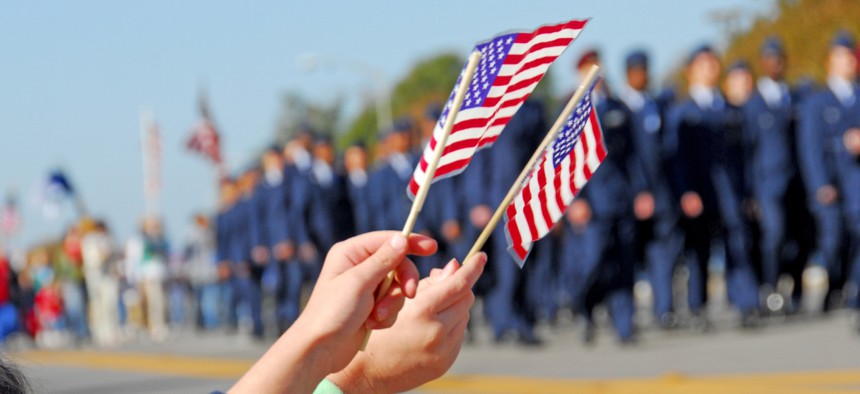House VA Committee Looks into Trolls Targeting Veterans Groups

Cheryl Casey/Shutterstock.com
Someone’s spreading misinformation to veterans and their families and Congress wants to know who.
House Veterans’ Affairs Committee Chairman Mark Takano, D-Calif., launched an investigation this month into who’s impersonating veterans service organizations to target service members, veterans, their families and the American public.
“Our veterans served in uniform to guard against threats to our democracy just like those posed by these internet bots and trolls intent on sowing division and spreading misinformation,” Takano said in a statement. “Congress has a responsibility to stamp out these anonymous individuals and protect our country from threats foreign and domestic.”
The committee is looking into reports of campaigns that impersonate veterans and VSOs to share misleading content or fabricated “news” about military issues and ultimately cause confusion or inspire fear amongst veterans and their families. A committee staffer told Nextgov that they’re currently in the fact-finding stage of the investigation and plan to soon hold stakeholder meetings on the issue.
Today’s technological landscape has made it easy for instigators to use tools such as email and social media to influence voting behaviors or trick Americans into sharing their most sensitive personal data.
Kristofer Goldsmith, a veteran who served on the frontlines in Iraq before smartphones and social media were ubiquitous, has been tracking and combatting trolls and foreign adversaries targeting Vietnam Veterans of America, a congressionally-chartered VSO, since August 2017. He said the work is more important now than it has ever been.
“I’m really glad that Chairman Takano recognizes that too, because I feel like we’ve been screaming from the rooftops and until now no one has really heard us,” Goldsmith said.
Goldsmith explained that studies show many aspects specific to veterans make them vulnerable and lucrative targets for nefarious internet trolls housed on American soil and abroad. For example, veterans form strong comraderies by joining many military-related social groups online. At the same time, VVA chapters operate in countries across the world, including Mexico, Vietnam, the Philippines, and beyond. Goldsmith said all VVA chapters are allowed to use one unique VVA logo, so hundreds of social media accounts for various VVA chapters can legitimately use the same logo—and trolls impersonating VVA can trick service members by illegitimately using that logo, as well.
“I think that this is the same story with every VSO,” Goldsmith said. “These foreign actors—now I believe they’re from 34 countries outside of the U.S. at this point—have recognized that this is something that they can easily tap into.”
Goldsmith also said it’s “a good use of resources for our foreign adversaries to make targets out of veterans and service members” because the demographics generally have an outsized voting effect on those in their surroundings.
“When I was 21 years old, returning to my hometown after a year at war, people around me really cared about my opinion because I had seen things that they never will in their lives,” Goldsmith said. “So, for trolls, it makes economic sense: if they sway my opinion, they’ll sway my family’s opinion too, because their voting behaviors and social media presence are adjusted by my own.”
He said trolls are really good at creating clickable content and there are countless ways they exploit veterans online.
“But the ultimate goal is to weaken our democracy and the way that they do that is they’re basically raising the volume on the arguments that are already happening within our country,” Goldsmith said. He added that they also build divisive and triggering echo chambers online that otherwise wouldn’t exist.
“They are creating not just sources of conflict, but in my opinion, they are endangering the lives of vulnerable vets,” he said.
Though he believes the trolls’ impact is monumental, Goldsmith said he doesn’t think that this issue is on many vets’—muchless many Americans’—radars.
“Frankly, it’s frightening,” he said. “The most valuable thing Takano’s office is going to do for us is elevate this issue outside of the military and veterans’ bubble.”






